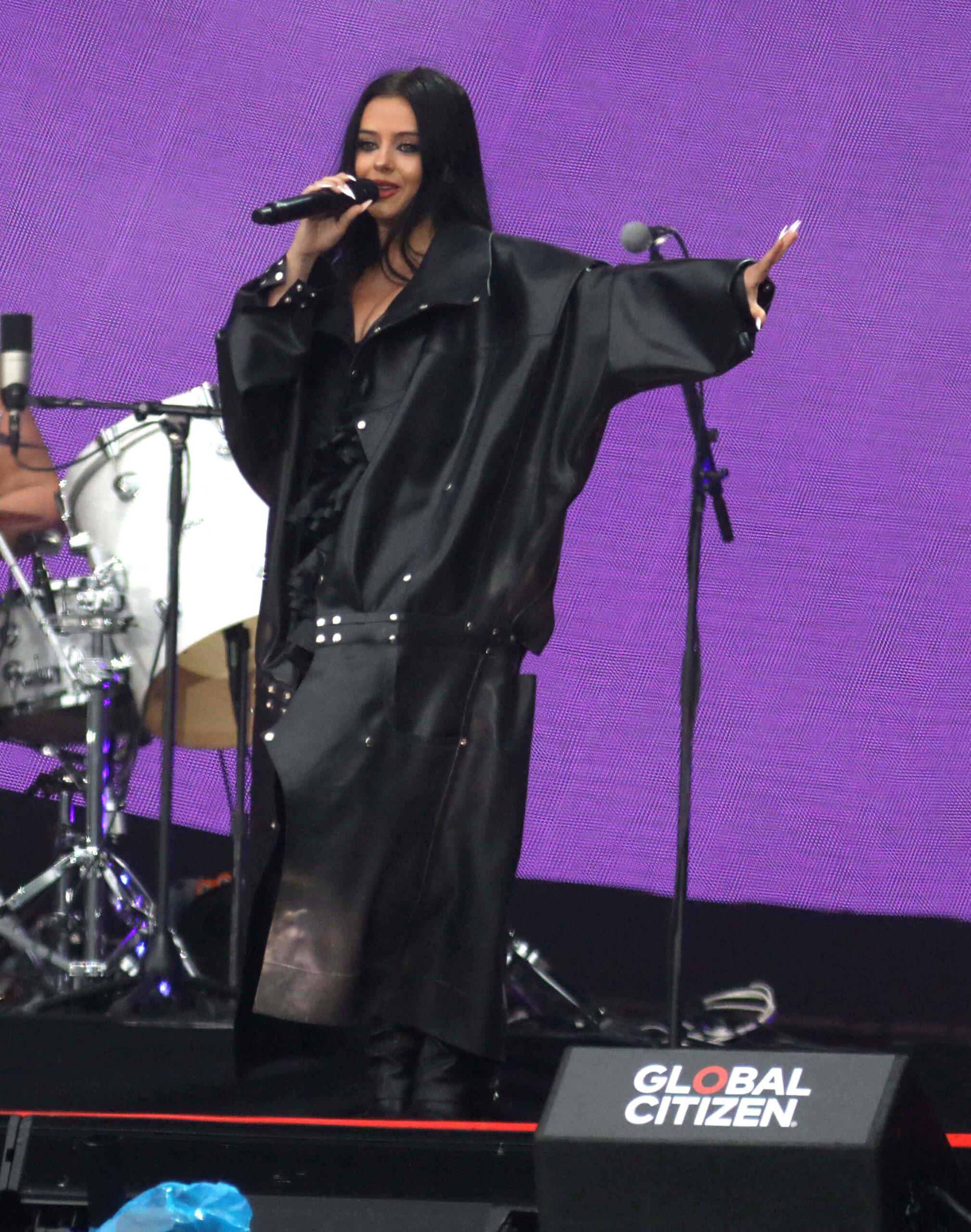Rising nation star Jessie Murph isn’t any stranger to pushing boundaries, however her newest monitor might have gone too far for some followers and trade insiders.
The 20-year-old artist, who just lately dropped her provocative new album “Intercourse Hysteria,” is underneath hearth after releasing the music video for her monitor 1965, which many are accusing of glorifying home violence and selling outdated gender roles.
Whereas the Alabama native has been lauded for her genre-blending sound and uncooked honesty, Jessie Murph’s newest work has taken a controversial flip.
Article continues beneath commercial
Jessie Murph Sparks Outrage With Controversial ‘1965’ Lyrics
“We would go to church on a Sunday, get up on Monday / You’d go to work and I would keep residence and sing and do enjoyable issues / I would get just a little slap-slap, however you would not hit me on Snapchat.”
She follows with the provocative hook:
“I feel I would quit a number of rights, if you happen to would simply love me prefer it’s 1965.”
The accompanying video provides gasoline to the fireplace, that includes a graphic intercourse scene that has shocked many viewers, and even sparked a viral development on TikTok the place customers movie their surprised reactions. One significantly jarring scene exhibits a girl sure and mendacity face down on a sofa, which many consider implies home violence.
Article continues beneath commercial
Murph Accused Of Crossing The Line With Controversial New Monitor

Now, critics and followers alike are debating whether or not Murph’s newest launch crosses the road.
One insider in Nashville instructed Each day Mail the uproar is a part of a calculated transfer. “Controversy creates money,” they stated, including that it’s a” win” for her, “even when many discover it to be grotesque.”
Nonetheless, some within the trade consider Murph’s so-called edginess has taken a troubling flip, calling the monitor “sexist” and “tone-deaf.”
Article continues beneath commercial
Jessie Murph Defends ‘1965’ As Satire Amid Kanye West Comparisons

Murph, nevertheless, insists the lyrics and video are supposed to be satirical.
“That complete music is sort of a joke,” she instructed Teen Vogue in an interview, disregarding the criticism. One other nation insider echoed her protection, calling the lyrics “very sophomoric” however finally “to not be taken severely.”
But, comparisons to different controversy-courting artists, similar to Kanye West, are starting to floor.
“If she continues this and goes utterly off the rails like Kanye, then individuals ought to have extra conversations concerning the particular person she is reasonably than the artist she is,” the supply added.
Article continues beneath commercial
Murph Embraces The Backlash

The controversy surrounding “1965” comes simply days after Jessie Murph opened up about her unapologetic method to music and picture.
“I’m glad that I make individuals have some type of response. I’d reasonably them be like, ‘I hate you,’ or ‘I really like you,’ reasonably than, ‘I really feel indifferently,’ I suppose,” Murph instructed Teen Vogue earlier this 12 months.
That daring perspective seems to be fueling her present wave of provocative releases, together with her newest album “Intercourse Hysteria,” which has already stirred passionate reactions throughout the web. Nonetheless, the singer admits navigating criticism isn’t at all times straightforward.
Article continues beneath commercial
“However nonetheless, I simply discover it f-cking bizarre… I don’t have any hate in my coronary heart,” she defined. “That’s been one thing that I’ve been making an attempt to determine. How one can navigate and never react and get mad, as a result of it completely makes me be like, ‘F-ck you, b-tch.’”
Jessie Murph Will get Private On ‘Intercourse Hysteria’

Whereas Jessie Murph could also be catching warmth for her provocative imagery and unapologetic lyrics, “Intercourse Hysteria” isn’t all shock worth. Beneath the controversy lies a deep effectively of non-public grief and reflection, significantly on tracks like “Heroin” and “The Man That Got here Again.”
In “Heroin,” Murph makes use of the drug as a haunting metaphor for returning to somebody poisonous, delivering gut-punch traces like:
“There is a violence in the best way I lengthy for you / And it is a battle, the best way you like me such as you do.”
The vulnerability is uncooked, but fastidiously constructed, steering away from cliché and pushing listeners to really feel the burden of her emotional battle zone.
Article continues beneath commercial
Jessie Murph Breaks Down The Music She Practically Lower From ‘Intercourse Hysteria’

However maybe probably the most devastating second on the album is “The Man That Got here Again,” a soul-baring nation monitor written about her estranged father. Murph admitted she practically pulled the music from the album completely, regardless of penning it at 17. “I simply do not wish to harm anyone,” she confessed.
After years of claiming to really feel “nothing” about his absence, the reality started unraveling in conversations along with her mom, particularly as soon as Murph realized extra about what their relationship regarded like behind closed doorways.
“That made me so indignant,” she revealed. “To see any individual I really like discuss how they had been handled… all these emotions sort of culminated and got here out directly and I used to be like, ‘Oh sh-t. I suppose I do really feel some kind of means about this.’”
“Intercourse Hysteria” is out now.




